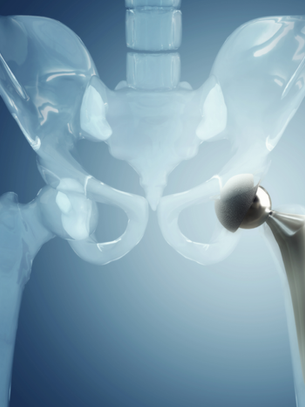top of page
Enriching Wellness


Chest Pain
Chest pain is a warning signal your body should never ignore. Whether caused by the heart, lungs, or even stress, timely attention and the right care can save lives. Listening to your body today is the strongest step toward a healthier tomorrow.

Anuj Tiwari
Nov 2, 20253 min read


How Physiotherapy Helps Children with Developmental Delays
Understanding the early signs is crucial, as early detection often leads to better support and outcomes for children. In this blog, we’ll highlight seven common warning signs every parent should know, along with practical steps to take if you notice them.

Anuj Tiwari
Nov 2, 20253 min read


Different Physiological Changes Seen with Aging
Aging is not a story of loss but one of transformation. Our bodies reflect the strength and endurance of the lives we have lived. By understanding and respecting these changes, we can nurture our health, embrace the years ahead, and truly add life to our years!
Dr. Rucha Bhaskarwar
Oct 30, 20254 min read


Physiotherapy for Rheumatoid Arthritis
Reduce daily pain and stiffness
Maintain flexibility so you don’t feel “locked in”
Build protective muscle strength
Prevent long-term deformities in fingers, knees, or spine
Stay independent in doing the things you love
Dr. Rucha Bhaskarwar
Oct 22, 20252 min read


The Role of Telerehabilitation in Modern Healthcare
Healthcare is evolving rapidly, and rehabilitation is no exception. Telerehabilitation, or telerehab , has moved far beyond being a temporary solution during the pandemic. Today, it has become an essential part of modern healthcare. With people spending more time online, working remotely, and expecting convenience in every aspect of life, rehabilitation too must meet patients where they are—often in their own homes. The need for this shift is clear. Conditions such as chronic
Dr. Rucha Bhaskarwar
Oct 20, 20253 min read


Role of Physiotherapy in Wound Healing
Wound healing occurs in four stages:
Haemostasis – The body forms a clot to stop bleeding.
Inflammation – White blood cells fight infection and clear away debris.
Proliferation – New blood vessels, collagen, and tissue are formed.
Remodelling – The tissue gradually strengthens as the wound matures.
Any disruption in these phases—such as poor circulation, infection, immobility, or chronic illness—can delay healing.

Anuj Tiwari
Oct 10, 20252 min read


How Does an Individual Perceive Pain?
Pain is something we have all experienced, yet very few people truly understand it. Most believe it works like a simple alarm: you get hurt, so you feel pain.
But pain is not just a raw signal from your body. It is a decision your brain makes after weighing your body’s condition, your emotions, your past experiences, and even what is happening around you at that exact moment.
Dr. Richa Bhaskarwar
Aug 26, 20253 min read


How Physiotherapy Improves Lung Function: A Breath of Relief
Lung function refers to the ability of your lungs to absorb oxygen and expel carbon dioxide efficiently. It is measured using several parameters, including tidal volume, respiratory rate, and forced expiratory volume (FEV1). When lung function is reduced, it can cause shortness of breath, fatigue, and decreased endurance, making everyday activities challenging.

Anuj Tiwari
Aug 25, 20253 min read


Thoracic Outlet Syndrome
Thoracic outlet syndrome, also known as TOS, is a condition where the nerves or blood vessels passing through the side of the neck are compressed between the collarbone and the first rib. This could lead to pain, numbness, tingling, and weakness in the shoulder, arm, hand, and neck. The space between the neck and the shoulder is known as the thoracic outlet.

Carlona Nazareth
May 30, 20252 min read


Precautions After a Joint Replacement Surgery
Most people who choose to have a joint replacement do so because of conditions like osteoarthritis and rheumatoid arthritis, which impair the joint, causing pain and immobility due to the destruction of the joint surface from the wear and tear of the cartilage lining. The common joints replaced are the hip, knee, ankle, shoulder, wrist, and elbow.

Carlona Nazareth
May 23, 20252 min read


What Is Deconditioning and How to Prevent It?
Deconditioning refers to the physical and physiological changes that occur when the body is not used regularly or adequately challenged. It can happen to anyone—whether you're recovering from surgery, confined to bed rest, or just stuck in a cycle of inactivity.

Sakshi Thakar
May 18, 20252 min read


Anemia
Anemia is more than just “feeling tired” – it’s your body crying out for oxygen. Along with medical treatment, physiotherapy can be very helpful to you in regaining energy, improving fitness, and living a healthier, more active life. If you or someone you know is dealing with anemia, consider speaking to a physiotherapist.

Dr. Vidya Chilvery (PT)
May 14, 20253 min read


Breaking Limits: The Power of Sports for People with Disabilities
Sports for individuals with disabilities is not solely focused on winning medals or matches; it's about overcoming obstacles, boosting self-esteem, and demonstrating that ability is more significant than disability. Engaging in sports can enhance physical health, alleviate stress, and develop social skills.
Pavithra
May 10, 20252 min read


Essential Benefits of Postpartum Physiotherapy for New Moms
Women undergo significant physical and emotional changes after pregnancy, including pelvic floor weakness, separation of abdominal muscles, back pain, poor posture, and discomfort in various other parts of the body. These changes make postpartum physiotherapy especially important due to its ability to restore strength and enhance overall health.

Dr. Srishti Sahu
May 7, 20252 min read


Physiotherapy For Frozen Hip
Frozen hip, also known as adhesive capsulitis of the hip, is a condition where there is pain and reduced mobility due to inflammation and thickening of the joint capsule of the hip joint. The tissues around the hip joint thicken, causing stiffness and pain. This pain can be felt in the buttocks as well as the groin and can radiate to the thigh.

Carlona Nazareth
May 2, 20252 min read


Gait Abnormalities in Pediatric Population
Gait abnormalities in children can range from benign variations that resolve over time to significant medical concerns that require intervention. Identifying these abnormalities early can help address any underlying conditions and prevent long-term complications. If you notice unusual walking patterns in your child, consulting a pediatrician, orthopedic specialist, or physiotherapist can guide appropriate next steps for assessment and management.

Sakshi Thakar
Apr 23, 20252 min read


Meniscal Tears Rehabilitation
Your knee joint is made up of bones, ligaments, cartilage, and muscles. The meniscus is a C-shaped cartilage in your knee that acts like a shock absorber, preventing bones from rubbing together. You have two in each knee—one on the inner side (medial meniscus) and one on the outer side (lateral meniscus).

Dr. Vidya Chilvery (PT)
Apr 15, 20253 min read


Hansen’s Disease or Leprosy
Hansen's Disease is a long-term infection triggered by Mycobacterium leprae, impacting the skin, peripheral nerves, mucous membranes.
Virali
Apr 15, 20252 min read


Simple Tips to Stay Healthy: The Importance of Preventive Healthcare
Preventive healthcare is all about taking proactive steps to stay healthy and avoiding future problems before they arise. In India, where he
Dr. Rucha Bhaskarwar
Apr 7, 20253 min read


Role of Physiotherapy in Cancer Survivors
Cancer is a global health problem responsible for one in six deaths worldwide. Treating cancer is a highly complex process.
Arpita Desai
Apr 6, 20252 min read
bottom of page